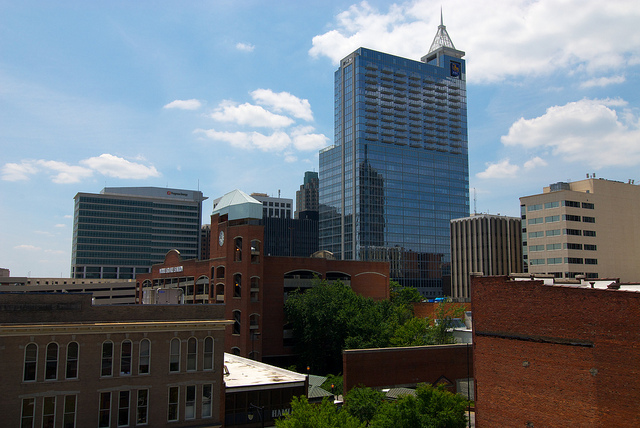Some people have great ideas for a new Raleigh downtown development, but they don’t have the land. People who own the land may not have any great ideas. Neither party may have the money to invest.
Architectural designers have scheduled a brainstorming session this week to make it easier to develop the city’s unused spaces. The event begins at 6:30 p.m. Wednesday.
Time: 6:30 p.m.
Date: Wednesday, June 5
Location: Urban Design Center, 220 Fayetteville Street, Raleigh
Matthew Griifth of the in situ architectural studio said the hackathon at the city’s Urban Design Center may begin changing that. Organized by Griffith, in situ’s Erin Sterling Lewis and the Gensler design firm’s Brett Hautop, the goal is to bring 50 people in a room, break them into teams and come up with ideas for how the different players in downtown development can learn what each other has to offer.
Griffith said in situ gave a March lecture at the Urban Design Center called “Residual Raleigh,” focusing on the amount of under-utilized space in and around downtown Raleigh.
“The proposal we built over the course of the lecture was for a more effective way to connect people who have great idea for businesses and other uses in and around downtown with people who have the resources — that is, the property or money,” Griffith said.
Hackathons originated in the IT world, offering marathon planning and coding sessions for software professionals working to complete new projects, similar to the CityCamp North Carolina event held last week. They’ve become popular in a variety of fields, bringing together IT pros with experts in book publishing, education or development.
Griffith said invitations for Wednesday’s event have gone out to a number of people, but it’s also open to anyone who wants to attend. He said he’d like to see architectural designers, real estate professionals and computer and database experts working together. The ideal outcome would be walking out of the event with a framework for how to connect people and develop those unused spaces.
“If you have a framework, you have other obstacles,” he said, “but at least you have the framework.”
Raleigh Planning Director Mitchell Silver said although the Urban Design Center is hosting the event, it’s not a city-run project: “It’s local designers that want to have a conversation about downtown.”
Silver said during the next couple of years the city will develop its own downtown plan, including what to do about unused space, and it will probably draw on the hackathon report. If the hackathon actually leads to development before the plan is done, he added, the city’s certainly not going to complain.
